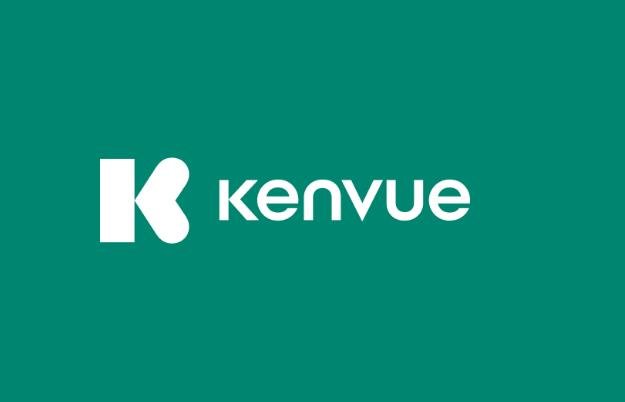Johnson & Johnson (J&J), one of the world’s largest and most diversified healthcare companies, has completed the spinoff of its consumer health unit, Kenvue, in a historic move that creates a new independent entity with a market value of around $40 billion. Kenvue, which owns popular brands such as Listerine, Tylenol, Aveeno, and Band-Aid, began trading on the New York Stock Exchange on May 4, 2023, under the ticker symbol KVUE.
Why did J&J spin off Kenvue?
J&J announced its plan to separate its consumer health business in November 2022, as part of its strategy to focus on its core segments of pharmaceuticals and medical devices, which have higher growth and profit margins than consumer products. The company said that the spinoff would allow both J&J and Kenvue to pursue their own strategic priorities, optimize their capital structures, and enhance their operational efficiencies.

The spinoff also came amid legal challenges and reputational damage for J&J, which faced thousands of lawsuits over its role in the opioid crisis, its talc-based products that allegedly caused cancer, and its COVID-19 vaccine that was linked to rare blood clots. By spinning off Kenvue, J&J hoped to reduce its exposure to these liabilities and improve its public image.
How did J&J shareholders benefit from the spinoff?
J&J shareholders had the option to exchange some or all of their J&J shares for Kenvue shares at a 7.53% discount, meaning that they could receive $107.53 worth of Kenvue shares for every $100 worth of J&J shares they tendered. The exchange offer was oversubscribed, as more than 500 million J&J shares were tendered, representing about 19% of J&J’s outstanding shares. As a result, J&J accepted only 167 million shares for exchange, or about 6.5% of its total shares.
The exchange offer was tax-free for U.S. shareholders, meaning that they did not have to pay any capital gains tax on the transaction. The exchange offer also increased J&J’s earnings per share (EPS) by reducing its share count, while giving shareholders an opportunity to own a stake in a new consumer health leader.
How is Kenvue performing as a standalone company?
Kenvue raised $4.2 billion in net proceeds from its initial public offering (IPO), which it used to repay debt owed to J&J and fund its working capital needs. The company sold 184 million shares at $23 per share, the high end of its expected range of $20 to $23. The IPO valued Kenvue at about $42 billion, making it one of the largest IPOs in U.S. history.
Kenvue reported its first quarterly results as an independent company on August 7, 2023, showing a revenue growth of 11% year over year to $3.8 billion, driven by strong demand for its over-the-counter medicines, personal care products, and oral care products. The company’s net income increased by 15% to $543 million, while its adjusted EPS rose by 18% to $0.58, beating analysts’ estimates of $0.57.
Kenvue also issued an optimistic guidance for the full year 2023, expecting revenue growth of 9% to 11% and adjusted EPS growth of 12% to 15%. The company said that it would invest in innovation, marketing, and digital capabilities to enhance its brand portfolio and customer loyalty. Kenvue also declared a quarterly dividend of $0.20 per share, implying a dividend yield of 3.4%.
What are the challenges and opportunities for Kenvue?
Kenvue faces several challenges as it operates in a highly competitive and regulated consumer health market. The company has to contend with rival brands from other global players such as Procter & Gamble (P&G), Unilever (UL), and Colgate-Palmolive (CL), as well as private-label products from retailers such as Walmart (WMT) and Amazon (AMZN). Kenvue also has to deal with changing consumer preferences, regulatory uncertainties, supply chain disruptions, and currency fluctuations.
However, Kenvue also has many opportunities to grow and create value for its shareholders. The company has a diversified portfolio of trusted brands that enjoy strong market positions and customer loyalty in various categories such as pain relief, oral care, skin health, baby care, and wound care. The company also has a global presence in more than 150 countries, with significant growth potential in emerging markets such as China, India, Brazil, and Russia.
Kenvue plans to leverage its innovation capabilities, digital transformation initiatives, and sustainability efforts to differentiate itself from its competitors and meet the evolving needs of its consumers. The company also aims to pursue strategic partnerships, acquisitions, and licensing deals to expand its product offerings and geographic reach.
Is Kenvue a good investment?
Kenvue is a new consumer health giant that emerged from J&J’s spinoff, offering investors a chance to own a piece of a stable and profitable business with a strong brand portfolio and growth prospects. The company’s shares have gained about 2% since its IPO, trading at around $23.50 as of August 10, 2023, giving it a market cap of about $45 billion.
Based on its expected EPS of $2.30 for 2023, Kenvue has a price-to-earnings (P/E) ratio of about 10.2, which is lower than the average P/E ratio of 15.6 for the consumer staples sector. The company also pays a decent dividend yield of 3.4%, which is higher than the average dividend yield of 2.5% for the sector.
Kenvue may not be a high-growth stock, but it is a solid and reliable one that can generate consistent cash flows and dividends for investors. The company may also benefit from its separation from J&J, as it can focus on its core consumer health business and pursue its own strategic goals. Kenvue is worth considering for investors who are looking for a defensive and dividend-paying stock in the consumer health industry.
